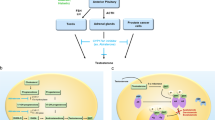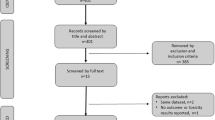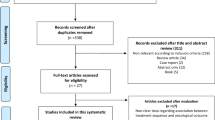Abstract
Androgen deprivation therapy (ADT) alone has been the cornerstone of treatment for patients with newly diagnosed metastatic prostate cancer for the past century. Based on results from landmark trials in the past decade, combination approaches of ADT with chemotherapy or novel hormonal agents have established a new standard of care for these patients. This paradigm shift in treatment has been reflected in the updates to guideline recommendations of major professional associations. However, real-world data from around the world have highlighted the dismal adoption of combination therapy, despite evidence-based recommendations. The disparity between evidence and practice is concerning, especially with emerging evidence of survival benefit with further treatment intensification using triplet combinations (ADT, docetaxel and novel hormonal agents). Thus, a pressing need to raise awareness and call the uro-oncology community to action exists to deliver evidence-based care for these patients.
This is a preview of subscription content, access via your institution
Access options
Access Nature and 54 other Nature Portfolio journals
Get Nature+, our best-value online-access subscription
$29.99 / 30 days
cancel any time
Subscribe to this journal
Receive 12 print issues and online access
$209.00 per year
only $17.42 per issue
Buy this article
- Purchase on Springer Link
- Instant access to full article PDF
Prices may be subject to local taxes which are calculated during checkout

Similar content being viewed by others
References
Giona, S. The Epidemiology of Prostate Cancer (Exon Publications, 2021).
Sweeney, C. J. et al. Chemohormonal therapy in metastatic hormone-sensitive prostate cancer. N. Engl. J. Med. 373, 737–746 (2015).
James, N. D. et al. Survival with newly diagnosed metastatic prostate cancer in the “Docetaxel era”: data from 917 patients in the control arm of the STAMPEDE trial (MRC PR08, CRUK/06/019). Eur. Urol. 67, 1028–1038 (2015).
Tangen, C. M. et al. Improved overall survival trends of men with newly diagnosed M1 prostate cancer: a SWOG phase III trial experience (S8494, S8894 and S9346). J. Urol. 188, 1164–1169 (2012).
US Food and Drug Administration. Drug approval package — Taxotere (docetaxel) injection (FDA, 2004).
Logothetis, C. J. et al. Effect of abiraterone acetate and prednisone compared with placebo and prednisone on pain control and skeletal-related events in patients with metastatic castration-resistant prostate cancer: exploratory analysis of data from the COU-AA-301 randomised trial. Lancet Oncol. 13, 1210–1217 (2012).
Ryan, C. J. et al. Abiraterone in metastatic prostate cancer without previous chemotherapy. N. Engl. J. Med. 368, 138–148 (2013).
Beer, T. M. et al. Enzalutamide in men with chemotherapy-naïve metastatic castration-resistant prostate cancer: extended analysis of the phase 3 PREVAIL study. Eur. Urol. 71, 151–154 (2017).
Fizazi, K. et al. Effect of enzalutamide on time to first skeletal-related event, pain, and quality of life in men with castration-resistant prostate cancer: results from the randomised, phase 3 AFFIRM trial. Lancet Oncol. 15, 1147–1156 (2014).
Hoskin, P. et al. Efficacy and safety of radium-223 dichloride in patients with castration-resistant prostate cancer and symptomatic bone metastases, with or without previous docetaxel use: a prespecified subgroup analysis from the randomised, double-blind, phase 3 ALSYMPCA trial. Lancet Oncol. 15, 1397–1406 (2014).
Yamada, Y. & Beltran, H. The treatment landscape of metastatic prostate cancer. Cancer Lett. 519, 20–29 (2021).
Sayegh, N., Swami, U. & Agarwal, N. Recent advances in the management of metastatic prostate cancer. JCO Oncol. Pract. 18, 45–55 (2022).
Armstrong, A. J. et al. ARCHES: a randomized, phase III study of androgen deprivation therapy with enzalutamide or placebo in men with metastatic hormone-sensitive prostate cancer. J. Clin. Oncol. 37, 2974–2986 (2019).
Chi, K. N. et al. Apalutamide in patients with metastatic castration-sensitive prostate cancer: final survival analysis of the randomized, double-blind, phase III TITAN study. J. Clin. Oncol. 39, 2294–2303 (2021).
Fizazi, K. et al. Abiraterone acetate plus prednisone in patients with newly diagnosed high-risk metastatic castration-sensitive prostate cancer (LATITUDE): final overall survival analysis of a randomised, double-blind, phase 3 trial. Lancet Oncol. 20, 686–700 (2019).
James, N. D. et al. Addition of docetaxel, zoledronic acid, or both to first-line long-term hormone therapy in prostate cancer (STAMPEDE): survival results from an adaptive, multiarm, multistage, platform randomised controlled trial. Lancet 387, 1163–1177 (2016).
Goebell, P. J. et al. 623P Real-world treatment patterns in metastatic hormone-sensitive prostate cancer (mHSPC) patients in the US, Germany, France, China and Japan. Ann. Oncol. 32 (Suppl. 5), S660–S661 (2021).
James, N. D. et al. Abiraterone for prostate cancer not previously treated with hormone therapy. N. Engl. J. Med. 377, 338–351 (2017).
Davis, I. D. et al. Enzalutamide with standard first-line therapy in metastatic prostate cancer. N. Engl. J. Med. 381, 121–131 (2019).
Fizazi, K. et al. A phase 3 trial with a 2x2 factorial design of abiraterone acetate plus prednisone and/or local radiotherapy in men with de novo metastatic castration-sensitive prostate cancer (mCSPC): First results of PEACE-1. J. Clin. Oncol. 39, 5000 (2021).
Smith, M. R. et al. Darolutamide and survival in metastatic, hormone-sensitive prostate cancer. N. Engl. J. Med. 386, 1132–1142 (2022).
Mottet, N. et al. EAU Guidelines (EAU Guidelines Office, 2021).
Cornford, P. et al. EAU-EANM-ESTRO-ESUR-SIOG Guidelines on prostate cancer. Part II-2020 update: treatment of relapsing and metastatic prostate cancer. Eur. Urol. 79, 263–282 (2021).
Lowrance, W. T. et al. Advanced prostate cancer: AUA/ASTRO/SUO Guideline Part I. J. Urol. 205, 14–21 (2021).
Schaeffer, E. et al. NCCN Guidelines insights: prostate cancer, version 1.2021. J. Natl Compr. Canc. Netw. 19, 134–143 (2021).
Marchioni, M. et al. New antiandrogen compounds compared to docetaxel for metastatic hormone sensitive prostate cancer: results from a network meta-analysis. J. Urol. 203, 751–759 (2020).
Sathianathen, N. J. et al. Indirect comparisons of efficacy between combination approaches in metastatic hormone-sensitive prostate cancer: a systematic review and network meta-analysis. Eur. Urol. 77, 365–372 (2020).
Mori, K. et al. Systemic therapies for metastatic hormone-sensitive prostate cancer: network meta-analysis. BJU Int. 129, 423–433 (2022).
Freedland, S. J. et al. Real-world utilization of advanced therapies and racial disparity among patients with metastatic castration-sensitive prostate cancer (mCSPC): a Medicare database analysis. J. Clin. Oncol. 39, 5073 (2021).
Tagawa, S., Sandin, R., Sah, J., Mu, Q. & Freedland, S. Treatment patterns of metastatic castration-sensitive prostate cancer (mCSPC): a real-world evidence study. Ann. Oncol. 31, S541–S542 (2020).
Wallis, C. J. D. et al. Real-world use of androgen-deprivation therapy: intensification among older Canadian men with de novo metastatic prostate cancer. JNCI Cancer Spectr. 5, pkab082 (2021).
Azad, A. A. et al. Predictors of real-world utilisation of docetaxel combined with androgen deprivation therapy in metastatic hormone-sensitive prostate cancer. Intern. Med. J. 52, 1339–1346 (2022).
Rulach, R. J. et al. Real-world uptake, safety profile and outcomes of docetaxel in newly diagnosed metastatic prostate cancer. BJU Int. 121, 268–274 (2018).
Gillessen, S. et al. Management of patients with advanced prostate cancer: report from the advanced prostate cancer consensus conference 2021. Eur. Urol. 82, 115–141 (2022).
Schutz, F. A. B. et al. Optimizing outcomes for patients with metastatic prostate cancer: insights from South East Asia expert panel. Ther. Adv. Med. Oncol. 13, 1758835920985464 (2021).
Sathianathen, N. J. et al. A cost-effectiveness analysis of systemic therapy for metastatic hormone-sensitive prostate cancer. Eur. Urol. Oncol. 2, 649–655 (2019).
Aguiar, P. N. Jr et al. Cost-effectiveness analysis of abiraterone, docetaxel or placebo plus androgen deprivation therapy for hormone-sensitive advanced prostate cancer. Einstein 17, eGS4414 (2019).
George, D. J. in European Society for Medical Oncology Annual Congress (ESMO, 2021).
Swami, U. et al. Treatment pattern and outcomes with systemic therapy in men with metastatic prostate cancer in the real-world patients in the United States. Cancers 13, 4951 (2021).
European Federation of Pharmaceutical Industries and Associations. The root cause of unavailability and delay to innovative medicines: reducing the time before patients have access to innovative medicines (EFPIA, 2020).
European Federation of Pharmaceutical Industries and Associations. EFPIA patients W.A.I.T. indicator 2021 survey (EFPIA, 2022).
European Commission. Europe’s Beating Cancer Plan: a new EU approach to prevention, treatment and care. EC https://ec.europa.eu/commission/presscorner/detail/en/IP_21_342 (2021).
European Cancer Organisation. Health Systems and Treatment Optimisation Network. European Cancer Organisation https://www.europeancancer.org/topic-networks/2:health-systems-and-treatment-optimisation.html (2021).
Maluf, F. C. et al. Consensus for treatment of metastatic castration-sensitive prostate cancer: report from the first global prostate cancer consensus conference for developing countries (PCCCDC). JCO Glob. Oncol. 7, 550–558 (2021).
Klein, J. & von dem Knesebeck, O. Socioeconomic inequalities in prostate cancer survival: a review of the evidence and explanatory factors. Soc. Sci. Med. 142, 9–18 (2015).
Dasgupta, P. et al. Geographical variations in prostate cancer outcomes: a systematic review of international evidence. Front. Oncol. 9, 238 (2019).
Hamid, A. A. et al. Transcriptional profiling of primary prostate tumor in metastatic hormone-sensitive prostate cancer and association with clinical outcomes: correlative analysis of the E3805 CHAARTED trial. Ann. Oncol. 32, 1157–1166 (2021).
Grist, E. et al. Accumulation of copy number alterations and clinical progression across advanced prostate cancer. Genome Med. 14, 102 (2022).
Wu, K. et al. Evaluation of the efficacy of PARP inhibitors in metastatic castration-resistant prostate cancer: a systematic review and meta-analysis. Front. Pharmacol. 12, 777663 (2021).
Li, L. et al. Androgen receptor inhibitor-induced “BRCAness” and PARP inhibition are synthetically lethal for castration-resistant prostate cancer. Sci. Signal. 10, eaam7479 (2017).
Asim, M. et al. Synthetic lethality between androgen receptor signalling and the PARP pathway in prostate cancer. Nat. Commun. 8, 374 (2017).
Schiewer, M. J. et al. Dual roles of PARP-1 promote cancer growth and progression. Cancer Discov. 2, 1134–1149 (2012).
US National Library of Medicine. ClinicalTrials.gov https://clinicaltrials.gov/ct2/show/NCT04497844 (2022).
US National Library of Medicine. ClinicalTrials.gov https://clinicaltrials.gov/ct2/show/NCT04821622 (2022).
Sartor, O. et al. Lutetium-177–PSMA-617 for metastatic castration-resistant prostate cancer. N. Engl. J. Med. 385, 1091–1103 (2021).
Hofman, M. S. et al. [177Lu]Lu-PSMA-617 versus cabazitaxel in patients with metastatic castration-resistant prostate cancer (TheraP): a randomised, open-label, phase 2 trial. Lancet 397, 797–804 (2021).
Dhiantravan, N. et al. UpFrontPSMA: a randomized phase 2 study of sequential 177Lu-PSMA-617 and docetaxel vs docetaxel in metastatic hormone-naïve prostate cancer (clinical trial protocol). BJU Int. 128, 331–342 (2021).
Azad, A. et al. UpFrontPSMA: a randomized phase II study of sequential 177Lu-PSMA617 and docetaxel versus docetaxel in metastatic hormone-naïve prostate cancer (mHNPC). J. Clin. Oncol. 39, TPS180 (2021).
Sartor, A. O. et al. PSMAddition: a phase 3 trial to compare treatment with 177Lu-PSMA-617 plus standard of care (SOC) versus SOC alone in patients with metastatic hormone-sensitive prostate cancer. J. Clin. Oncol. 40, TPS210 (2022).
Shorning, B. Y., Dass, M. S., Smalley, M. J. & Pearson, H. B. The PI3K-AKT-mTOR pathway and prostate cancer: at the crossroads of AR, MAPK, and WNT signaling. Int. J. Mol. Sci. 21, 4507 (2020).
Thomas, C. et al. Synergistic targeting of PI3K/AKT pathway and androgen receptor axis significantly delays castration-resistant prostate cancer progression in vivo. Mol. Cancer Ther. 12, 2342–2355 (2013).
Crabb, S. J. et al. Updated overall survival (OS) analysis for ProCAID: a randomized, double-blind, placebo-controlled phase II trial of capivasertib with docetaxel versus docetaxel alone in metastatic castration-sensitive prostate cancer (mCRPC). J. Clin. Oncol. 40, 108 (2022).
Fizazi, K. et al. A phase III trial of capivasertib and abiraterone versus placebo and abiraterone in patients with de novo metastatic hormone-sensitive prostate cancer characterized by PTEN deficiency (CAPItello-281). J. Clin. Oncol. 39, TPS178 (2021).
Marcus, L., Lemery, S. J., Keegan, P. & Pazdur, R. FDA approval summary: pembrolizumab for the treatment of microsatellite instability-high solid tumors. Clin. Cancer Res. 25, 3753–3758 (2019).
Gratzke, C., Niu, C., Poehlein, C. H. & Burgents, J. E. Pembrolizumab (pembro) plus enzalutamide (enza) and androgen deprivation therapy (ADT) for patients (pts) with metastatic hormone-sensitive prostate cancer (mHSPC): the phase III KEYNOTE-991 study. J. Clin. Oncol. 39, TPS184 (2021).
Hussain, M. et al. Intermittent versus continuous androgen deprivation in prostate cancer. N. Engl. J. Med. 368, 1314–1325 (2013).
Carrot, A. et al. Modeled early longitudinal PSA kinetics prognostic value in rising PSA prostate cancer patients after local therapy treated with ADT +/− docetaxel. Cancers 14, 815 (2022).
Harshman, L. C. et al. Seven-month prostate-specific antigen is prognostic in metastatic hormone-sensitive prostate cancer treated with androgen deprivation with or without docetaxel. J. Clin. Oncol. 36, 376–382 (2018).
Nakanishi, S., Goya, M., Tamaki, M., Oshiro, T. & Saito, S. Three-month early change in prostate-specific antigen levels as a predictive marker for overall survival during hormonal therapy for metastatic hormone-sensitive prostate cancer. BMC Res. Notes 14, 227 (2021).
Rogers, E. M. Diffusion of Innovations (Free Press, 2003).
Dearing, J. W. & Cox, J. G. Diffusion of innovations theory, principles, and practice. Health Aff. 37, 183–190 (2018).
Armstrong, A. J. et al. Improved survival with enzalutamide in patients with metastatic hormone-sensitive prostate cancer. J. Clin. Oncol. 40, 1616–1622 (2022).
Armstrong, A. J. et al. Efficacy of enzalutamide plus androgen deprivation therapy in metastatic hormone-sensitive prostate cancer by pattern of metastatic spread: ARCHES post hoc analyses. J. Urol. 205, 1361–1371 (2021).
Author information
Authors and Affiliations
Contributions
D.G.M., K.C., J.O.B., A.M., P.J., B.D.K., V.K. and A.A.A. researched data for the article. All authors contributed substantially to discussion of the content. D.G.M., K.C., J.O.B., A.M., P.J. and A.A.A. wrote the article. D.G.M., K.C., J.O.B., B.D.K., V.K. N.L. and A.A.A. reviewed and/or edited the manuscript before submission.
Corresponding author
Ethics declarations
Competing interests
D.G.M. has received reimbursement for participation in advisory boards and delivering lectures from Astellas Pharmaceuticals, Janssen Pharma, Bayer, Ipsen, Ferring and AstraZeneca. K.C. has received honoraria for participation in advisory boards and delivering lectures from Astellas, Janssen Pharma, Bayer, AstraZeneca. V.K. receives funding from Prostate Cancer UK and the John Black Charitable Foundation for unrelated work. A.A.A. has been a consultant for Astellas, Janssen, Novartis, Aculeus Therapeutics; a speaker for Astellas, Janssen, Novartis, Amgen, Ipsen, Bristol Myers Squibb, Merck Serono and Bayer; received honoraria from Astellas, Novartis, Sanofi, AstraZeneca, Tolmar, Telix, Merck Serono, Janssen, Bristol Myers Squibb, Ipsen, Bayer, Pfizer, Amgen, Noxopharm, Merck Sharpe Dome, Aculeus Therapeutics; is on the scientific advisory board of Astellas, Novartis, Sanofi, AstraZeneca, Tolmar, Pfizer, Telix, Merck Serono, Janssen, Bristol Myers Squibb, Ipsen, Bayer, Merck Sharpe Dome, Amgen, Noxopharm; received research funding from Astellas (investigator), Merck Serono (investigator), AstraZeneca (investigator), Bristol Myers Squibb (institutional), AstraZeneca (institutional), Aptevo Therapeutics (institutional), Glaxo Smith Kline (institutional), Pfizer (institutional), MedImmune (institutional), Astellas (institutional), SYNthorx (institutional), Bionomics (institutional), Sanofi Aventis (institutional), Novartis (institutional), Ipsen (institutional), Exelixis (institutional), Merck Sharpe Dome (institutional), Janssen (institutional), Eli Lilly (institutional) and Gilead Sciences (institutional). The other authors declare no competing interests.
Peer review
Peer review information
Nature Reviews Urology thanks B. Tombal and N. Agarwal for their contribution to the peer review of this work.
Additional information
Publisher’s note Springer Nature remains neutral with regard to jurisdictional claims in published maps and institutional affiliations.
Rights and permissions
Springer Nature or its licensor (e.g. a society or other partner) holds exclusive rights to this article under a publishing agreement with the author(s) or other rightsholder(s); author self-archiving of the accepted manuscript version of this article is solely governed by the terms of such publishing agreement and applicable law.
About this article
Cite this article
Chen, K., O’Brien, J., McVey, A. et al. Combination treatment in metastatic prostate cancer: is the bar too high or have we fallen short?. Nat Rev Urol 20, 116–123 (2023). https://doi.org/10.1038/s41585-022-00669-z
Accepted:
Published:
Issue Date:
DOI: https://doi.org/10.1038/s41585-022-00669-z



